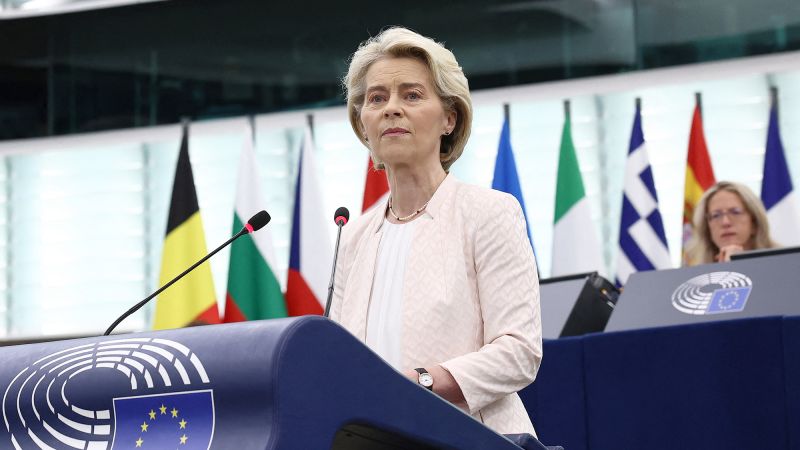Ursula von der Leyen, the first woman to head the European Commission, was re-elected for a second term, solidifying her position as one of the most influential figures on the European political stage. Von der Leyen’s reappointment speaks to her capability and commitment to the European Union, and endorses the strategic vision she outlined during her first tenure.
It is essential to scrutinize the journey of her presidency. German defense minister Ursula von der Leyen, elected as President of the European Commission in 2019, has a long tradition of public service and political involvement. Her experience has undoubtedly been instrumental in her success as president of this significant legislative body. She has fought persistently to address major European problems and to enhance the EU’s global standing through various initiatives and policies.
Von der Leyen’s leadership style is characterized by a focus on cooperation, unity and the promotion of shared European values in a bid to strengthen the European Union in the international arena. In her first term, she placed a particular emphasis on issues such as climate change, digital transition, and the European economy. Her ambitious attempt to challenge the status quo and to tackle these pressing issues head-on manifests in the European Green Deal, a blueprint to make Europe the first climate-neutral continent by 2050.
Moreover, her dedication towards managing the COVID-19 crisis deserves special attention. Against the backdrop of a major global pandemic, von der Leyen led the European response, navigating the complexities of vaccine procurement and distribution, facilitating economic recovery, managing borders, and guiding EU policy.
In her second term, von der Leyen’s policies and initiatives are likely to remain focused on continuity and innovation. It is expected that she will continue to embrace the gravity of the climate emergency with sweeping and decisive actions. Her commitment to the green transition, along with a steadfast dedication to digital transformation, may emerge as major pillars of her second tenure.
Von der Leyen’s further strategy for the future of the EU may also emphasize the reinforcement of the European ‘geopolitical Commission’, stressing the EU’s active role in global affairs. This could involve taking decisive action in matters affecting international relations, stability and collaboration – including sensitive topics like migration and security.
Furthermore, von der Leyen’s successful re-election may also play a role in shaping the gender dynamics in political leadership. Being the first woman to hold the position, she has undoubtedly broke gender barriers and has thus set a positive precedent for female leaders in the future.
In conclusion, Ursula von der Leyen’s re-election as President of the European Commission highlights her effective leadership and commitment to the European Union. The road ahead in her second term is both challenging and exciting, with much anticipation surrounding her strategies and initiatives for the future of the European Union. With her record of effective management and innovative solutions, there is great optimism as to what the President’s second term will bring on the European political stage.




